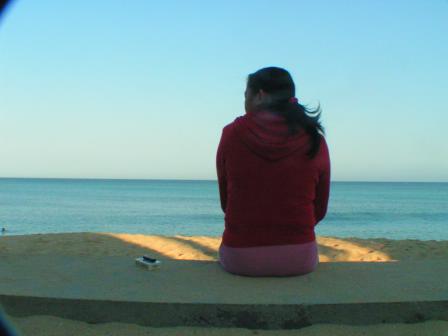A CSI-ish take on Celine Dion's Vegas house
A friend told me about his Vegas trip.
One of the more interesting things I was told was that Celine Dion had a contract with a Vegas hotel to put on a show 5 times a week for five years there. I had heard of this, but I didn't know the details. It turns out that she had only 2 conditions --- 1> that she be built her own auditorium for her show, and 2> that they would build a replica of her house behind the auditorium so her children would feel at home when they visited her.
'Replica?' I asked my friend.
I didn't think that was the right word. I think of replica and I imagine something like a wax form of Elvis Presley or a miniature doll house to look like your old house. Not a real house that looked and functioned in the same way as the original did.
For example, a copy of the Mona Lisa exists in lots of books, and have been replicated to become posters for hotels and restaurants. But they aren't as valuable as the original. Why? Because the strokes are different. They don't carry the history of the original Mona Lisa.
On the other hand, the house built behind the new auditorium in Vegas will function in exactly the same way as her old house. Additionally, it's of the same scale. So, I hesitate to call it a replica. Hmm... Gimme a term... ho-hum.
CLONE! It was a clone. It was not made with the exact same materials, but it functioned and was the exact scale of the original, which meant it was also valued the same as the original.
But, then again, the word 'clone' has a cultural context that makes most people associate it with humans or living things. So to make my 'call' (as CSI calls it) more plausible, I had to look in the Internet and see what these two words meant to back up my theory.
Dictionary.com had this to say:
rep·li·ca (rpl-k) n.
- A copy or reproduction of a work of art, especially one made by the original artist.
- A copy or reproduction, especially one on a scale smaller than the original.
--------------------------------------------------------------------------------
[Italian, from replicare, to repeat, from Late Latin replicre. See replicate.]
clone (kln) n.
- A cell, group of cells, or organism that are descended from and genetically identical to a single common ancestor, such as a bacterial colony whose members arose from a single original cell.
- An organism descended asexually from a single ancestor, such as a plant produced by layering or a polyp produced by budding.
- A DNA sequence, such as a gene, that is transferred from one organism to another and replicated by genetic engineering techniques.
- One that copies or closely resembles another, as in appearance or function: “filled with business-school clones in gray and blue suits” (Michael M. Thomas).
The last definitions for both say it all. They confirm my theory.
Ha.
Off to lunch now.





<< Home